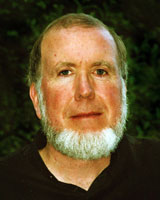I have just listened to a spectacular podcast. From 2006 – I missed it till I changed my system of managing podcasts – giving in to the iTunes default way.

Kevin Kelly – The Next 100 Years of Science: Long-term Trends in the Scientific Method.
Download: iTunes — Direct download
The textual summary is here:
http://www.edge.org/3rd_culture/kelly06/kelly06_index.html
I continue to discuss the podcast and relate themes to my own writing.
I love this final paragraph, of course:
Return of the Subjective – Science came into its own when it managed to refuse the subjective and embrace the objective. The repeatability of an experiment by another, perhaps less enthusiastic, observer was instrumental in keeping science rational. But as science plunges into the outer limits of scale – at the largest and smallest ends – and confronts the weirdness of the fundamental principles of matter/energy/information such as that inherent in quantum effects, it may not be able to ignore the role of observer. Existence seems to be a paradox of self-causality, and any science exploring the origins of existence will eventually have to embrace the subjective, without become irrational. The tools for managing paradox are still undeveloped.
He has a DVD of the same topic, talk? movie?
All this resonates with my paper: Psychotherapy & Science
This lecture by Kevin Kelly will lead me to update my essay. I contrast (as does JL Moreno) sociometry with “the physical sciences”, but there is no such thing, there is an evolving process of how we know stuff. I think Sociometry is on the list, and it could well include Sociometry 1933? (J.L. Moreno). Sociometry is the ultimate recursive device, though I have not heard it called that before. I imagine Kevin Kelly would be interested to learn about such a tool for the “subjective”, it is hard to grasp though, as Moreno’s writing is supposedly poor, or difficult. I think it is more that it is an experiential method, that requires experience as well as words. A bit like art.
Here is the list from the intro by Stuart Brand:
A particularly fruitful way to look at the history of science is to study how science itself has changed over time, with an eye to what that trajectory might suggest about the future. Kelly chronicled a sequence of new recursive devices in science…
2000 BC — First text indexes
200 BC — Cataloged library (at Alexandria)
1000 AD — Collaborative encyclopedia
1590 — Controlled experiment (Sir Francis Bacon)
1600 — Laboratory
1609 — Telescopes and microscopes
1650 — Society of experts
1665 — Repeatability (Robert Boyle)
1665 — Scholarly journals
1675 — Peer review
1687 — Hypothesis/prediction (Isaac Newton)
1920 — Falsifiability (Karl Popper)
1926 — Randomized design (Ronald Fisher)
1937 — Controlled placebo
1946 — Computer simulation
1950 — Double blind experiment
1962 — Study of scientific method (Thomas Kuhn)Projecting forward, Kelly had five things to say about the next 100 years in science…
On the Amazon page it mentions that Kevin Kelly is working on a book: “What Technology Wants” now that might resonate with another essay of mine: Archetypes of cyberspace

One Reply to “On the evolution of science.”